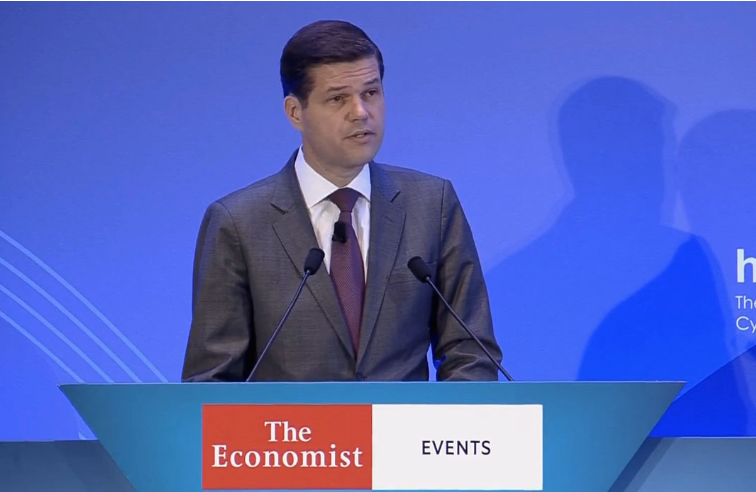Mitchell: The West must show that positive examples such as the Prespa Agreement are rewarded

The West must show that positive examples are rewarded and the Prespa Agreement was such an example. It opened a new chapter in relations between Greece and North Macedonia, gave opportunities for better economic cooperation and opened Skopje’s path towards the European Union. The deal also has an effect on the entire region and its integration, former US Assistant Secretary of State for European and Eurasian Affairs Wess Mitchell told The Economist Western Balkans Summit in Skopje on Tuesday.
Mitchell also referred to the Bulgaria friendship treaty, the expected start of North Macedonia and Albania’s EU accession negotiations and the Belgrade-Pristina dialogue.
“These are positive events that were unimaginable a while ago. These are processes that go much deeper. We in the West did not think that the Balkans could overcome the challenges in a political, economic and security sense, but it seems these times are over. The region and the world looked much different compared to the 1990s. Sixteen years have passed since the Western Balkans was promised a European perspective in Thessaloniki. We finally expect this to materialize,” said Mitchell.
He issued a caution that if regional countries failed to join the EU, something else would fill that void, be it Russia, China or fresh ethnic conflicts.
“We must support the region both economically and politically. The West should see countries in the area as means for peace and prosperity, while these countries should realize that by preventing the path of their neighbors, they prevent their own path,” added Mitchell.
According to him, the United States do not seek dependency from the region but strong democratic states that can freely decide which alliance to join.
“The Balkans has had enormous significance since antiquity. The big powers used and abused the region, the weakness of the small states is used to acquire domination in the region,” noted Mitchell.
He said the aspirations of Balkan nations have always been to establish freedom and democracy, which became visible after the breakup of former Yugoslavia, adding that the West appreciated such commitment, because the wish for integration in the EU is a modern vision that is unfortunately brought into question due to the new geopolitical aspirations of Russia and China.
“Russia has attempted to establish control and domination over the entire region since the 18th century. It does not want the Western Balkans to consolidate, supporting internal conflicts in order to prevent governments to look to the West. China is trying to create economic domination and the Balkans is the key link to Europe. Russia wants destabilization, while China an economically dependent Western Balkans devoid of western influence,” said Mitchell.
He said the United States is trying to be more present in the region, but this must be made more visible.
“Our objective in the region is democratic states that respect the laws, countries that have no potential for interethnic and other conflicts, political and economic certainty, contrary to the other vision of the region that includes authoritarian regimes with corruption and instability. We must be increasingly present and strengthen our position in the Balkans. We must be careful in not repeating the bad stories from the past,” underlined former US Assistant Secretary of State for European and Eurasian Affairs Wess Mitchell in his address at the Western Balkans Summit in Skopje.